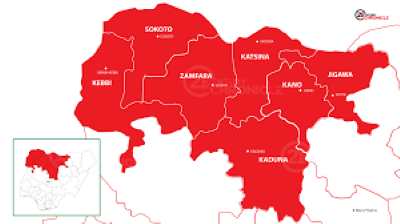Seven states in Nigeria’s Northwest have pledged to take decisive action against open defecation, a public health challenge that continues to threaten lives and dignity in the region.
At a two-day sanitation conference held at Dankani Guest Inn, Sokoto, representatives from Sokoto, Kebbi, Kano, Jigawa, Kaduna, Zamfara, and Katsina States agreed to embed sanitation-focused programmes into their 2026 budgets.
The meeting—championed by UNICEF under its Water, Sanitation, and Hygiene (WASH) programme—spotlighted the scaling up of the Sanitation Voucher Initiative, designed to help vulnerable households access toilet facilities.
Delegates, including commissioners for local government, environment, and chieftaincy affairs, stressed that open defecation is not just a health issue but also a developmental one.
“Our 2026 budget plans will reflect this commitment. Ending open defecation will require political will, community ownership, and sustained investment,” one representative affirmed.
Zamfara State Commissioner for Local Government and Chieftaincy Affairs, Engr. Ahmad Garba, described open defecation as a major driver of preventable diseases such as cholera and dysentery. He praised the Sanitation Voucher Programme for targeting households that cannot afford to build toilets.
“Not every family can afford to build a toilet. That’s why this voucher programme is a powerful intervention. Zamfara is fully on board—we are committed to making our state open defecation-free,” he said.
Garba also underscored the cultural and religious imperative for cleanliness, pointing out that both Islam and Christianity advocate hygiene and condemn practices that harm the environment.
“This is both a health and moral obligation,” he stressed.
Addressing security-related concerns that could hinder the programme’s rollout, he cited Katsina State as an example—despite insecurity, 33 out of 34 LGAs there have already been declared open defecation-free.
The conference ended with a united call for inter-state collaboration and community-driven strategies. Delegates expressed optimism that with political commitment, public engagement, and continued investment, the Northwest can meet Nigeria’s target of ending open defecation by 2030, in line with the Sustainable Development Goals (SDGs).
– Mohammed Usman Binji


